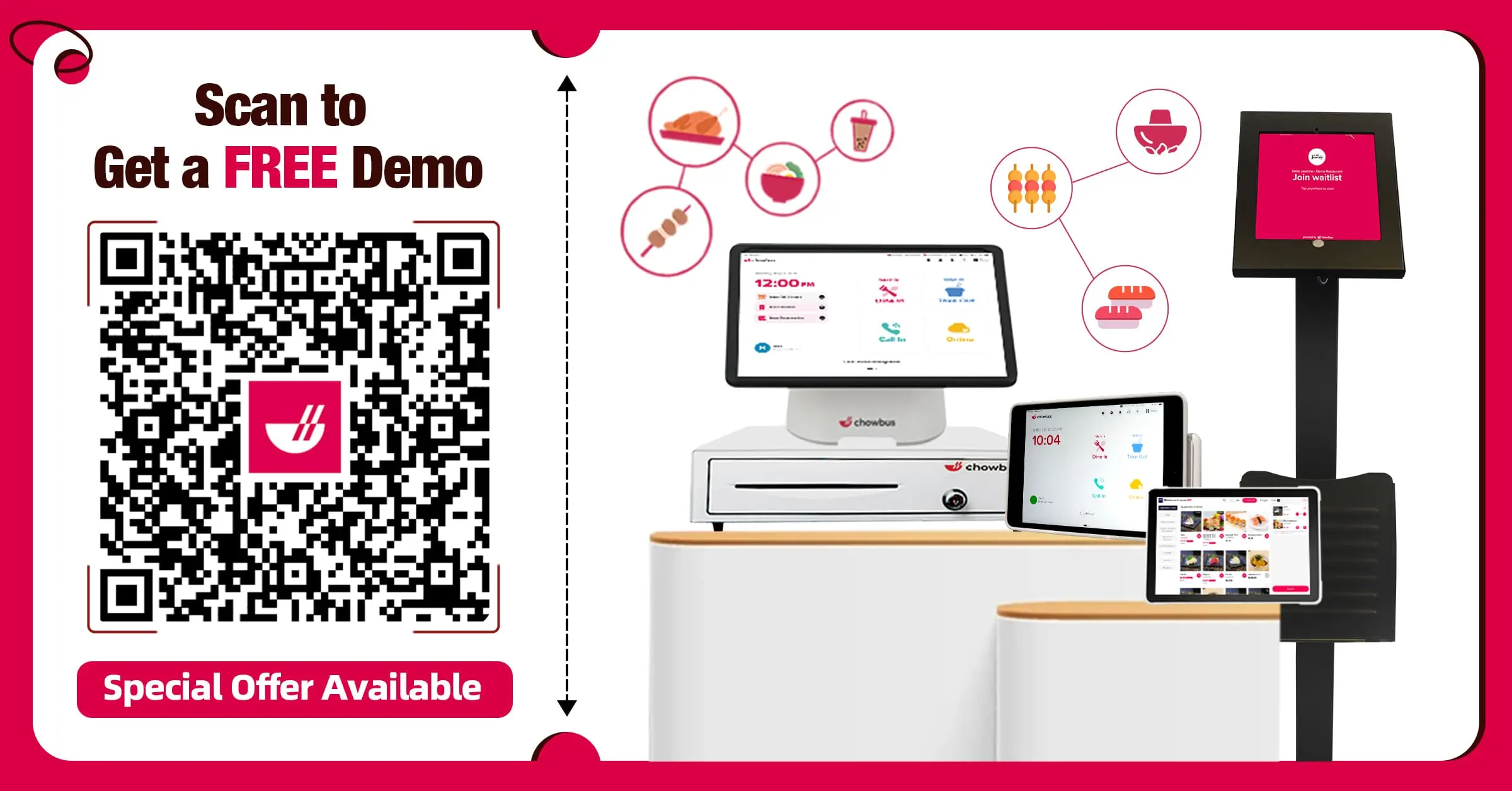South Carolina Minimum Wage: Minimum Wage in South Carolina for 2024

Are you up-to-date with the current minimum wage regulations in South Carolina? As a restaurant owner, it's crucial to understand how these laws impact your payroll and overall business operations.
This blog post will guide you through everything you need to know about the minimum wage in South Carolina for 2024. Whether you're setting up your payroll for the first time or updating your existing policies, this article has the essential information that will help you comply with the law while managing your costs effectively.

What is the Minimum Wage in South Carolina?
In South Carolina, the minimum wage directly aligns with the federal minimum wage due to the absence of a state-specific minimum wage law. As of 2024, the federal minimum wage stands at $7.25 per hour, a rate that has not been updated since July 24, 2009. This standard applies to most workers in the state under the Fair Labor Standards Act (FLSA), which serves as the baseline for minimum wage across the United States.
While there have been discussions and proposals within the South Carolina legislature to increase this rate—such as Bill 5187, which suggested raising the state minimum wage to $10 per hour or matching the federal rate if higher, and the 'South Carolina Minimum Wage Act,' which proposes setting the minimum wage at $15 per hour and adjusting it annually based on inflation—none have successfully passed into law. Thus, the current rate remains at $7.25 per hour.
South Carolina Minimum Wage Exceptions
While the general minimum wage applies broadly, there are notable exceptions that you should be aware of. These exceptions include provisions for workers with disabilities, full-time students, and youths under 20 during their first 90 days of employment. Additionally, South Carolina law allows for a lower wage payment for tipped employees and student-learners under certain conditions. Understanding these exceptions can help you navigate payroll decisions more effectively and ensure compliance with state and federal laws.
Minimum Wage for Tipped Employees in South Carolina
In the restaurant industry, tipped employees such as waitstaff and bartenders often receive a base wage that is less than the minimum wage due to the expectation of tip earnings. In South Carolina, the base wage for tipped employees is $2.13 per hour, provided their tips bring their total earnings up to at least the federal minimum wage of $7.25 per hour. This practice is governed by the concept of a tip credit, which we will explore next.
How Tip Credit Works
The tip credit allows you to count a portion of the tips your employees receive towards meeting the minimum wage requirements. The maximum tip credit that can be claimed in South Carolina is $5.12 per hour. This means if an employee’s tips combined with the base wage do not equal the minimum wage of $7.25 per hour, you are required to make up the difference. It is crucial to keep accurate records of tips and wages to ensure compliance and prevent potential disputes or legal issues.
Overtime Pay in South Carolina
South Carolina adheres to the Federal Fair Labor Standards Act (FLSA), which mandates that covered nonexempt employees must be compensated at one and a half times their regular pay rate for hours worked beyond 40 in a single workweek. This rule applies regardless of any work done during weekends or holidays unless these days fall within the employee's overtime hours.
Exemptions to Minimum Wage and Overtime Regulations
Knowing which employees may be exempt from minimum wage and overtime regulations under the FLSA is important. Here’s a breakdown of common exemptions:
Commissioned Sales Employees: Employees in retail or service establishments earning more than half their income from commissions and averaging at least 1.5 times the minimum wage per hour are exempt from overtime.
Computer Professionals: Those earning at least $27.63 per hour are exempt from overtime regulations.
Motor Transport Employees: Drivers, helpers, loaders, and mechanics involved in interstate commerce are exempt from overtime pay requirements.
Farmworkers on Small Farms: These workers are exempt from both minimum wage and overtime pay provisions. Specific rules also apply to young workers on these farms.
Automobile Dealership Workers: Salesmen, partsmen, and dealership mechanics are exempt from overtime pay requirements.
Seasonal and Recreational Workers: Under federal law, employees at certain seasonal and recreational establishments are exempt from minimum wage and overtime pay requirements.
Executive, Administrative, and Professional Employees: Those meeting specific criteria defined by the Department of Labor and paid on a salary basis are exempt from both minimum wage and overtime pay provisions.
As of April 2024, the U.S. Department of Labor has announced new regulations that will affect the salary thresholds for exempt employees, effective from July 2024. These updates will increase the salary level required for exemption, which may affect how some of your employees are classified.
Calculation of Overtime Pay in South Carolina
Calculating overtime pay is straightforward once you understand the eligibility criteria. Here’s a simple guide:
Determine if the employee is eligible for overtime (non-exempt).
Calculate the regular hourly rate (if not paid hourly, divide the weekly salary by hours worked).
For every hour over 40 in a single workweek, pay 1.5 times the regular rate.
For example, if an employee earns $7.25 per hour and works 45 hours in a week, the calculation would be:
Regular pay = 40 hours x $7.25 = $290
Overtime pay = 5 hours x ($7.25 x 1.5) = $54.375
Total weekly pay = $290 + $54.375 = $344.375
Therefore, with an overtime rate of $10.875 per hour (1.5 times $7.25), the total overtime pay for 5 hours would be $54.375. This brings the total weekly pay to $344.375.
South Carolina State Minimum Wage vs Federal Minimum Wage
Navigating the complexities of minimum wage laws can be challenging, but understanding the difference between federal and state guidelines is a good starting point.
Federal Minimum Wage
Currently, the federal minimum wage stands at $7.25 per hour. This has been the standard since July 24, 2009, and applies across the United States, unless a state has set a higher minimum wage. This baseline affects various sectors, including the private sector and governmental employees, under the Fair Labor Standards Act (FLSA).
State Minimum Wage
As mentioned, South Carolina adheres to the federal minimum wage standard, as the state has not established a separate minimum wage law. Thus, employers in South Carolina must pay their employees at least the federal minimum of $7.25 per hour. This applies to most employees, with specific exceptions for tipped employees and certain exempt occupations. In situations where state and federal laws differ, employees are entitled to the higher wage, though in this case, they coincide.
South Carolina Workplace Poster Requirements
As a South Carolina employer, you’re legally obligated to display specific labor law posters in areas easily seen by all employees. These are crucial for ensuring staff members know their rights and your duties under various labor laws. Here’s a breakdown of the required posters:
State Required Posters
South Carolina’s Department of Labor, Licensing and Regulation mandates that you post two critical notices:
LLR Workplace Poster: This poster includes important information about OSHA (Occupational Safety and Health) standards, Payment of Wages, and Child Labor laws under the Labor Law Abstract.
Right-to-Work Poster: This informs employees about their union membership and employment rights regardless of union affiliation.
Federal Required Posters
In addition to state posters, federal laws require you to display:
Fair Labor Standards Act (FLSA) Poster: Covers employee rights concerning the minimum wage.
OSHA Poster: Titled "Job Safety and Health: It's the Law", it details safety regulations in the workplace.
Family and Medical Leave Act (FMLA) Poster: Outlines employee rights and responsibilities under FMLA.
Pay Transparency Nondiscrimination Provision: Explains regulations under 41 CFR Part 60-1.35.
Migrant and Seasonal Agricultural Worker Protection Act (MSPA) Notice: Important for businesses employing seasonal workers
FLSA Section 14(c) Poster: Discusses rights for workers with disabilities receiving special minimum wages.
Employee Polygraph Protection Act (EPPA) Notice: Informs about the limitations on polygraph use.
USERRA Notice/Poster: Details rights under the Uniformed Services Employment and Reemployment Rights Act.
Employee Rights Under the H-2A Program: Essential for employers utilizing the H-2A temporary agricultural worker program.
“Know Your Rights” Poster: A general poster to inform employees about their various rights under federal labor laws.
Keeping these posters updated and visible is a legal requirement and a good practice to maintain transparency and avoid potential conflicts or misunderstandings about workplace rights and safety.
How Will the Minimum Wage Increase Impact My Business?
Should minimum wage rates rise, your restaurant could be looking at higher operational costs. This change would require a fresh look at your budget and financial strategy. You might find yourself tweaking menu prices or adjusting staff hours to keep your profit margins healthy.
On the upside, higher wages could boost employee morale, leading to increased job satisfaction and lower turnover rates. This improvement in staff stability often translates into better customer service and could enhance your restaurant's reputation.
Now, while these changes pose challenges, they also offer an opportunity to rethink how your restaurant operates. Let's explore how you can prepare for these adjustments in the next section.
How Can I Prepare My Business for Future Minimum Wage Increases?
Being proactive about potential wage increases is more than just good practice. It’s essential for the sustainability of your restaurant. To stay ahead, enhancing operational efficiency should be at the forefront of your strategy. But how can you do this effectively?
Let’s explore several technological solutions that can streamline your operations and reduce labor costs, keeping you competitive even as wages rise.
1. Handheld, Mobile, and Tablet POS Systems
Equip your staff with handheld, mobile, or tablet POS devices. These tools allow servers to take orders and process payments right at the table, cutting down the time spent running back and forth to stationary POS terminals. This speeds up service and improves order accuracy and customer satisfaction.
2. QR Code Ordering and Digital Menus
Implement a QR code ordering system where customers scan a QR code to access a digital menu on their mobile devices. This setup reduces the need for printed menus and minimizes the staff required to take orders, allowing guests to browse the menu, place orders, and even pay directly from their phones.
3. Self-Service Kiosks and Customer Facing Displays
Consider installing self-service kiosks where customers can place orders and make payments without staff assistance. For counters, a POS with a customer-facing display can enhance order accuracy and expedite the checkout process.
4. Third-Party Delivery and Online Ordering Integration
Expand your sales channels by integrating third-party delivery services and setting up an online ordering system. This will open up new revenue streams and optimize your staffing by handling more orders with fewer front-of-house staff.
5. Restaurant Reservation and Table Management Systems
Move away from manual note-taking and phone call reservations. Utilize a comprehensive restaurant reservation system that can digitally handle reservations, table management, and even waitlists. Systems like the Chowbus Waitlist App, coupled with integrations like Google Waitlist, allow guests to join the waitlist or book tables in-person and online, anytime and anywhere. This technology helps manage customer flow without constant staff attention.
6. Touchscreen POS Systems
Upgrade to touchscreen POS systems, which offer intuitive interfaces and faster operation. Such enhancements not only speed up transaction times but also reduce staff training time, which is crucial in high-turnover environments.
Integrating these technologies allows you to streamline your operations and effectively manage costs. This preparation is crucial for future wage increases without compromising service quality or operational efficiency. Embrace these innovations to stay competitive, reduce dependency on large staffing, and maintain profitability as labor costs rise.
Conclusion
Staying informed about the minimum wage laws in South Carolina is crucial for effective restaurant management. By understanding current regulations and planning for future changes, you can ensure your restaurant remains compliant and financially healthy.
Looking to enhance operational efficiency and increase your restaurant's revenue? Chowbus offers an all-in-one restaurant POS system solution tailored to streamline your business operations. By implementing our POS technology, you can potentially save over $8,000 in monthly labor costs and boost your business growth by 25%. Interested in seeing how it works?
Book a Free Demo/Consultation with Chowbus POS today and discover how you can optimize your restaurant management and maximize profitability!

Frequently Asked Questions About the Minimum Wage in South Carolina
Explore our guide to understanding the details of minimum wage and living wage standards in South Carolina, answering some of the most common questions people have about earnings and employment laws in the state.
What is a Livable Wage in South Carolina?
According to the MIT Living Wage Calculator, a livable wage in South Carolina varies depending on family size and the number of working adults. The living wage is approximately $21.23 per hour for a single adult with no children. This rate increases significantly for larger families; for example, a single adult with three children must earn around $54.00 per hour. In households where both adults work, the required hourly wage per adult is lower, starting from $14.26 for no children to $26.68 for three children.
What is SC Minimum Wage 2024?
The minimum wage in South Carolina for 2024 remains $7.25 per hour, which aligns with the federal minimum wage. South Carolina does not have its own state minimum wage law, so it defaults to the federal rate.
Is SC a Right-to-Work State?
Yes, South Carolina is a right-to-work state. According to the South Carolina Code of Laws, Title 41, Chapter 7, individuals cannot be denied employment based on their membership or nonmembership in a labor union. This means that both union and non-union workers have the right to work without being compelled to join or pay dues to a labor organization.
DISCLAIMER: This blog post provides general information about the minimum wage in South Carolina for 2024 and is not intended as legal advice. While we strive to keep our content updated, minimum wage rates and labor regulations can change. For the most accurate and personalized information, please consult with a labor law expert or the appropriate government agency. We make no guarantees about the completeness or accuracy of the information as it relates to your specific situation.

Recommended Articles: